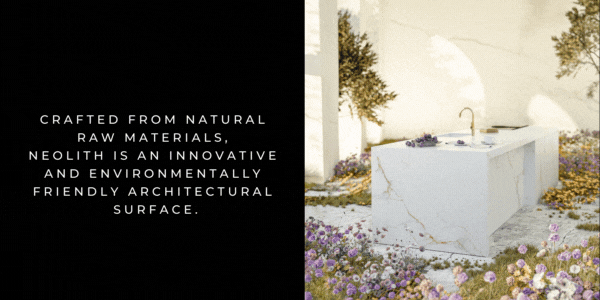Ambiente: Sustainable? Yes Please
Visitors to Ambiente 2019 will again find a range of outstanding manufacturers in the Ethical Style Guide. In early December the eight members of the expert jury convened in Frankfurt and decided on companies which had earned the label “ethical”, some of them for the first time.
Good news for the environment and the traditional crafts sector: In the run-up to Ambiente 2019 the experts on the Ethical Style committee received over 200 new submissions from 41 nations. 87 made it into the Ethical Style Guide for the first time. Together with those included in previous years, the total number of companies accepted as ethical has now reached 248 – all of them firms which are particularly committed to aspects of sustainability. This is the fourth time that the special quality seal is being awarded.
What are the decisive criteria for the jury? “To qualify as sustainable, a company needs to have a certain something,” says jury member Kees Bronk from CBI, the Centre for the Promotion of Imports from Developing Countries. Mimi Sewalski, CEO of avocadostore.de, adds with a smile: “We’ve learnt quite a bit since we launched the guide, and I’m sure we’ve become more strict.” The jury also has a new member, Christina Bocher, Senior Project Manager for Sustainability & Regulatory Compliance at Dekra. Before the group started their intensive consultation, they came to an agreement on the interpretation of some basic parameters, such as resource-friendly production, the preservation of traditional manufacturing techniques and aspects of social care and fairness towards everyone involved in production.
The result is a canon of well-known and less well-known companies with a convincing record in one or more categories. The companies that have emerged as favourites include the German porcelain manufacturers Kahla from Thuringia, the lighting brand It’s About RoMi from Amsterdam and the German fair trade company El Puente from Lower Saxony. The first part of the handy Ethical Style Guide booklet gives details of why the experts see these companies, in particular, as beacons of sustainability. Mimi Sewalski, who particularly likes the project Little Sun by the Danish, Berlin-based artist Ólafur Elíasson, gives a foretaste: “Little Sun brings light into regions where there’s no electric power. It gives people something we take for granted: reading, doing homework and working after dark.”
“Our discussion was very methodical,” says Lutz Dietzold, a member of the jury and Managing Director of the German Design Council. Max Gilgenmann, expert on sustainability criteria for textiles, emphasises that the jury always “looks for elements which are significant”, and this sometimes means taking a very close look to see whether a company’s commitment is genuine, or whether it’s just a case of green-washing. “Sometimes, after a long discussion, it’s good to feel free and turn an initial no into a yes,” comments Sabine Meyer, project manager at Side by Side Design. And Christina Bocher adds: “Where appropriate, we also need to weigh up our criteria for assessing manufacturers from industrialised and emerging countries.” Rudi Dalvai, President of the World Fair Trade Organisation (WFTO) says: “Ambiente makes a great contribution to promoting sustainability, and increasingly presents an incentive for companies to be part of this.” Kees Bronk agrees: “I feel honoured to be on this jury, as the biggest trade fair in the consumer goods industry is actually pushing sustainability.”
Short and sweet: Speed Dating@Ambiente
For the first time, speed dating will be held for those who are listed in the Ethical Style Guide. As in previous years, selected exhibitors will be given an opportunity on the Saturday of the trade fair to present their brands, products or collections to interested media representatives in no more than three minutes. Journalists are then given two minutes to ask questions. Interested companies should apply by 8 January 2019. The only requirement is an entry in the 2019 Ethical Style Guide.
The expert jury:
- Christina Bocher, Senior Project Manager for Sustainability & Regulatory Compliance at DEKRA
- Kees Bronk, coach at CBI, the Centre for the Promotion of Imports from Developing Countries
- Rudi Dalvai, President of the World Fair Trade Organisation (WFTO)
- Lutz Dietzold, Managing Director of the German Design Council
- Gerhard Friesacher, owner of Changemaker AG
- Max Gilgenmann, expert on sustainability criteria for textiles
- Sabine Meyer, project manager at Side by Side Design, Caritas Wendelstein Workshops;
- Mimi Sewalski, CEO of avocadostore.de
For more visit Ambiente.
You might also like...
-
RMB Latitudes Art Fair Returns for its Third Edition in 2025

RMB Latitudes Art Fair is thrilled to announce its third edition, set to take place in the enchanting Shepstone Gardens, Johannesburg, South Africa from Friday, 23 May to ...
-
Southern Guild: Expo Chicago

Highlighting Africa’s rich artistic oeuvre, Southern Guild will be returning to Expo Chicago for the third consecutive year this April with a presentation of new work by ...
-
Moroso Takes Centre Stage at ICFF 2025

Authorial design, contemporary vision, and Italian spirit in New York New York, May 2025 – Moroso reaffirms its position as a leader in contemporary design ...
-
Allfashion Sourcing 2025: Empowering the Textile & Fashion Industry

As the textile and fashion industry continues to evolve, Allfashion Sourcing Cape Town 2025 returns as a premier business-oriented marketplace, bringing together African creativity, design, ...






















